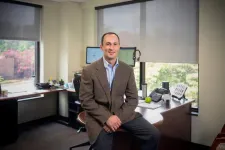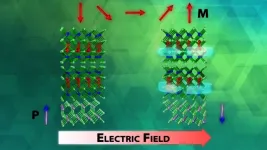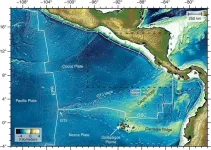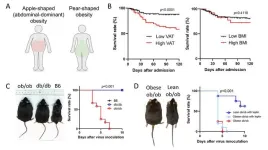(Press-News.org) In an article titled “A Meta-analysis of Correction Effects in Science-Relevant Misinformation” published in the journal Nature Human Behaviour, University of Pennsylvania social psychologists and communication scholars Man-pui Sally Chan and Dolores Albarracín explain the circumstances under which corrections of misinformation about science are most likely to work or fail, as well as the characteristics of the corrections most likely to succeed.
The authors conducted a meta-analysis, a quantitative synthesis of prior research, which involved 60,000 participants in 74 experiments. Each experiment either assessed belief in misinformation about science or introduced misinformation about science as accurate and then introduced corrections for the misinformation.
Although on average the corrections failed to accomplish their objectives, they worked better when the issue in the correction was emotionally more positive than the misinformation, the correction matched the ideology of the recipients, the issue was not politically polarized, and the correction provided abundant details as to why the earlier claims were false.
Can science-relevant misinformation be corrected on average?
The researchers found that “attempts to debunk science-relevant misinformation were, on average, not successful,” said Chan, the lead author and a research associate at the Annenberg School for Communication at the University of Pennsylvania. “Therefore, most of the science-relevant misinformation goes uncorrected even when a debunk is presented. People believe in the misinformation as much before as after the debunk. This is quite notable, because corrections in other domains, such as reports about an accident or political event, do reasonably well, as shown by past research. However, this does not occur in the domain of misinformation about science.”
The researchers conducted their study with two goals in mind. The first was gauging whether the misinformation can be corrected; the second was determining which types of corrections fare better than others.
Is it easier to correct good news or bad news?
To achieve those goals, the team began by figuring out whether negative or neutral misinformation is easier to correct. Their investigation confirmed that positive misinformation, which makes people “feel good about themselves, their future, or the world more generally,” the study says, is more challenging to correct than negative misinformation.
“We humans like to keep our rose-tinted glasses on, and we are resistant to debunking pseudoscience that feels good,” said Albarracín, the Alexandra Heyman Nash University Professor of the University of Pennsylvania and director of the Science of Science Communication division of the Annenberg Public Policy Center. “It is far easier to correct hype about a chemical spill that didn’t happen than about deforestation that is happening. The reason is that it’s more pleasant to move from pessimistic to optimistic news rather than the other way around.” Good news corrects negative misinformation more easily than bad news corrects positive misinformation, she said.
Detailed corrections
The researchers also asked what corrective messages are most successful. They found that when a correction offers a detailed explanation, the audience is more likely to be receptive, and the misinformation is more likely to be debunked. The process through which this occurs involves two stages. First, the particulars and information in the correction offer the respondent a new model through which to understand the event described in the misinformation. Then, this new representation of what produced the event replaces the initial model created by the misinformation.
The alignment of the correction with a recipient’s ideology
Chan and Albarracín also examined whether an individual’s attitudes or beliefs “affect the success of corrections of science-relevant misinformation.” They found that when the debunking contradicts people’s ideology, recipients are more likely to reject the correction and reinforce their support for the misinformation. So, for example, a person with a left-leaning ideology is disposed to accept a correction of claims opposing climate change. In contrast, when the debunking contradicts people’s ideology, recipients are more likely to reject the correction and reinforce their support for the misinformation.
When a topic is politically polarized, and ways to succeed
Another important factor is political polarization around the scientific issue being discussed. The study found that when a topic is polarized, as, for example, Covid-19 vaccination, the correction often fails. “It’s more than twice as hard to debunk polarized misinformation than it is to correct non-polarized misinformation,” Albarracín said.
There are, however, ways to correct misinformation. Once obstacles can be accounted for, they can be worked around. Chan recommended “using corrections that are detailed, increasing familiarity with the topic in the audience, making discussions of science not about politics to depolarize them. But if the topic is already politically polarized, then the correction must be written in a way that aligns with the recipient’s politics.”
Chan is part of a research team led by Albarracín that is focused on finding ways to curb the effects of scientific misinformation. Other recently published research by her team demonstrated that without having to confront misinformation about an issue, its effects can be circumvented or “bypassed” by bolstering beliefs that increase support for policies that are socially beneficial.
The article “A meta-analysis of correction effects in science-relevant misinformation” was published June 15, 2023, in Nature Human Behaviour.
The Annenberg Public Policy Center was established in 1993 to educate the public and policy makers about communication’s role in advancing public understanding of political, science, and health issues at the local, state, and federal levels.
END
Research identifies factors that make correcting misinformation about science more successful
2023-06-20
ELSE PRESS RELEASES FROM THIS DATE:
Wider access to health insurance via Medicaid expansion improved cardiac care
2023-06-20
Research Highlights:
States that participated in the Medicaid expansion provision of the Affordable Care Act, raising the income level to be eligible for Medicaid up to 138% of the federal poverty level, improved several measures of heart disease care for Medicaid recipients in their states.
In an analysis of 30 studies comparing states that chose to participate in Medicaid expansion with those that didn’t, Medicaid expansion was associated with improvement in insurance coverage for cardiac care, decreased out-of-hospital deaths, fewer socioeconomic and demographic disparities in care and increased preventive care and screening.
Embargoed until 1 p.m. CT/2 p.m. ET, ...
Less-invasive cardiac MRI is a valuable diagnostic tool in the early evaluation of patients with acute chest pain
2023-06-20
WINSTON-SALEM, N.C. – June 20, 2023 – An estimated 3 million patients visit emergency departments each year with acute chest pain and mildly elevated troponin levels. High levels of troponin, a protein, occur when the heart muscle is damaged from a heart attack. How best to evaluate and treat patients with chest pain with detectable or mildly elevated troponin remains unclear.
Now, a new study from researchers at Wake Forest University School of Medicine reveals that cardiac magnetic resonance imaging (MRI), is a safe and valuable tool to help evaluate these complex patients.
The ...
Novel way to manipulate exotic materials
2023-06-20
An advance in a topological insulator material — whose interior behaves like an electrical insulator but whose surface behaves like a conductor — could revolutionize the fields of next-generation electronics and quantum computing, according to scientists at Oak Ridge National Laboratory.
Discovered in the 1980s, a topological material is a new phase of material whose discoverers received a Nobel Prize in 2016. Using only an electric field, ORNL researchers have transformed a normal insulator into a magnetic topological insulator. This exotic material allows electricity ...
Research pilot sets the stage for better, more equitable aortic stenosis care
2023-06-20
DALLAS, June 20, 2023 — New research published today in Circulation: Cardiovascular Quality and Outcomes examines the pilot phase of the American Heart Association quality improvement program Target: Aortic Stenosis™. The program aims to lay the groundwork to more reliably measure performance on the quality of aortic stenosis (AS) care from diagnosis to treatment. The Target: Aortic Stenosis program focuses on closing care gaps for patients who are not appropriately diagnosed and referred for initial ...
Community spaces may promote healthy aging for rural Black, Hispanic adults
2023-06-20
UNIVERSITY PARK, Pa. — Millions of Americans over the age of 65 lack access to the social and emotional support they need for healthy aging, according to the Centers for Disease Control and Prevention. Non-white individuals in rural communities are especially susceptible. New research from Penn State found that the presence of social infrastructure — shared community spaces that are free or low cost to visit — in rural communities may help provide social and emotional support and promote healthy aging among older, ...
Concluding remarks & perspectives of Targeting Phage Therapy 2023
2023-06-20
The 6th World Congress on Targeting Phage Therapy 2023 that was held on June 1-2 in Paris, and gathered more than 150 attendees from 30+ different countries. Targeting Phage Therapy 2023 included more than 71 presentations between major talks, short orals, and posters.
The Chairman of the scientific committee Dr. Marvin Edeas Université de Paris, Cochin Institute, France, and Dr. Domenico Frezza, University of Roma Tor Vergata, Italy, stated: “It’s wonderful to hear that the speakers at the Targeting Phage Therapy 2023 conference delivered excellent presentations on a variety of fantastic topics. The fact ...
CEHD researchers receive funding for Appalachian Conservation Strategy Feasibility Pilot
2023-06-20
Sammie Powers, Assistant Professor, Recreation Management, School of Sport, Recreation, and Tourism Management (SRTM); Hung-Ling Liu, Associate Professor, Recreation Management, SRTM; and Ellen Rodgers, Associate Dean, College of Education and Human Development (CEHD), received funding from the Appalachian Trail Conservancy (ATC) for the project: "Appalachian Conservation Strategy Feasibility Pilot: Conservation and Human Dimensions Stakeholder Engagement Action Plan Project."
They are collaborating with Nate Trauntvein, Associate Professor, ...
Menon & Maribojoc receive funding for evaluation services for step ahead 2.0 – housing first support services pilot
2023-06-20
Menon & Maribojoc Receive Funding For Evaluation Services For Step Ahead 2.0 – Housing First Support Services Pilot
Nirup Menon, Professor, Information Systems and Operations Management (ISOM), and Roderick Maribojoc, Executive Director, Real Estate Entrepreneurship, received funding for: "Evaluation Services for Step Ahead 2.0 – Housing First Support Services Pilot."
Menon and Maribojoc are being funded to evaluate the impact of services in reducing homelessness in Fairfax ...
Scientists unearth 20 million years of ‘hot spot’ magmatism under Cocos plate
2023-06-20
Ten years ago, Samer Naif made an unexpected discovery in Earth’s mantle: a narrow pocket, proposed to be filled with magma, hidden some 60 kilometers beneath the seafloor of the Cocos Plate.
Mantle melts are buoyant and typically float toward the surface — think underwater volcanoes that erupt to form strings of islands. But Naif’s imaging instead showed a clear slice of semi-molten rock: low-degree partial melts, still sandwiched at the base of the plate some 37 miles beneath the ocean floor.
Then, the observation provided an explanation for how tectonic plates can gradually slide, ...
When it comes to COVID-19, belly fat upsets the apple cart
2023-06-20
Researchers from Tokyo Medical and Dental University (TMDU) find that apple-shaped obesity is associated with cytokine storm and a higher risk of death in COVID-19 patients
Tokyo, Japan – Eating an apple a day may keep the doctor away, but having an apple shape is not nearly as healthy. Now, researchers from Japan have shown that people who carry their weight in their bellies may be at greater risk of poor outcomes if they catch COVID-19.
In a study published last month in Proceedings of the National Academy of Sciences (PNAS), researchers from Tokyo Medical ...




